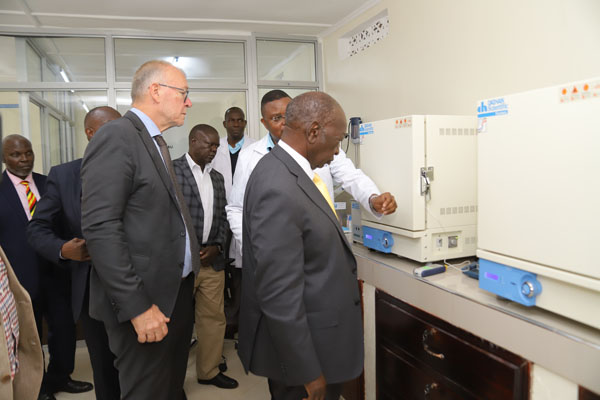Govt sets interventions to build private sector resilience

Government says it is working on initiatives that seek to promote private sector resilience and competitiveness. Photo | File
What you need to know:
In the second National Strategy for Private Sector Development, government will be seeking to support private sector growth, build resilience and put in place measures that enable it to become competitive at regional level
Government will in the next five years focus on building a resilient and competitive private sector that is expected to compete at regional level.
The plan, according to the Ministry of Finance is contained in the second National Strategy for Private Sector Development covering the period between 2022 and 2028.
The strategy seeks to support private sector growth, build resilience and put in place measures that to enable it become competitive at regional level.
Development of a strong and dynamic private sector remains crucial as a catalyst for sustainable poverty reduction.
Speaking during the national validation meeting in Kampala yesterday, Ms Dianah Nannono, the Ministry of Finance head of sector development, said the strategy for private sector development will act as a coordinating framework for all efforts that seek to consolidate private sector competitiveness.
“We want to accelerate inclusive monetisation of the economy and consolidate efforts for private sector competitiveness,” she said, noting that to achieve this government will have to reduce informality and increase competitiveness of the private sector, foster recovery of the private sector growth, strengthen area-based private sector development and strengthen coordination of state and non-state efforts.
Overall, the strategy will build on achievements during the first phase, some of which have seen an increase in export earnings, creation of over 7,000 jobs, infrastructural development and digitisation of the land registry.
The strategy also provides feasible interventions at the macro and micro levels to effect a turnaround of the private sector that is currently struggling with Covid-19 disruptions, worsened by a slowdown in economic growth.
At the macro level, Ms Nannono noted, key interventions will include fast trucking the implementation of the domestic revenue mobilisation strategy, payment of domestic arrears, further capitalisation of public banks and ensuring a conducive interest regime.
Other interventions will include implementation of a comprehensive local content policy, removal of barriers to formalisation, revival of cooperatives and leveraging local private sector participation.
Ms Anna Nambooze, the Trade Mark East Africa Uganda and South Sudan country director, said in an interview that targeted interventions should be taken to enable the private sector to become competitive in the region.




